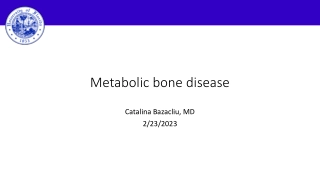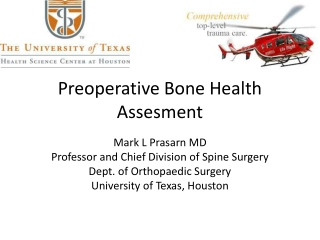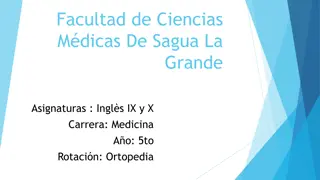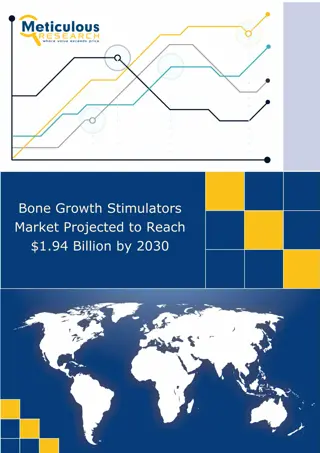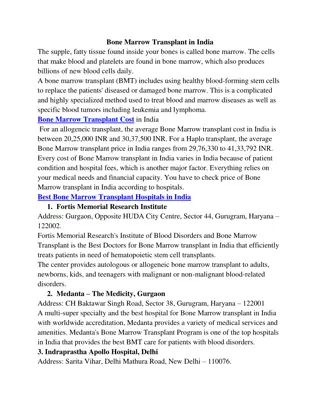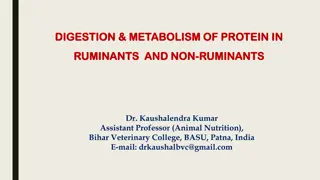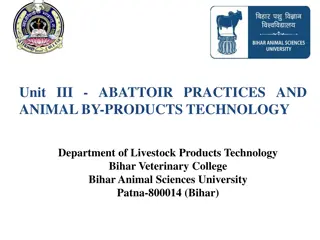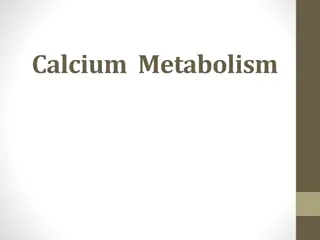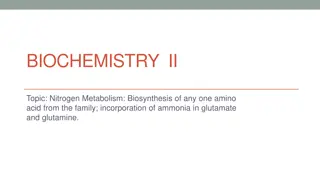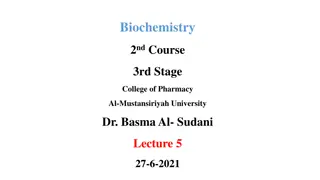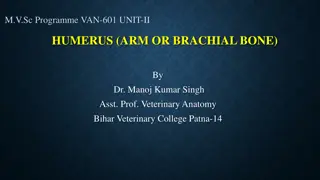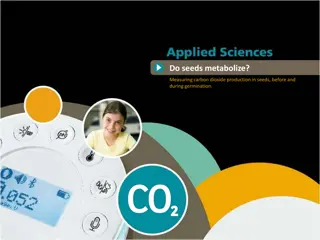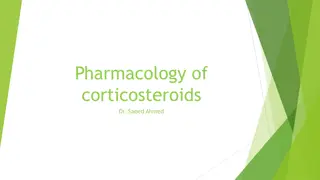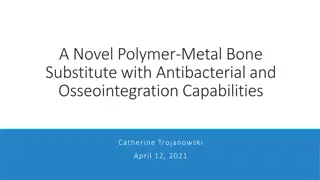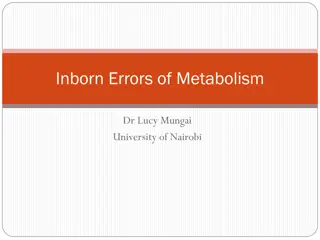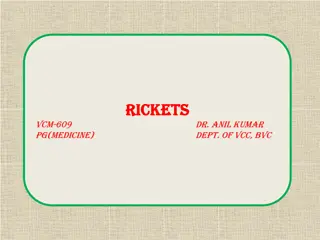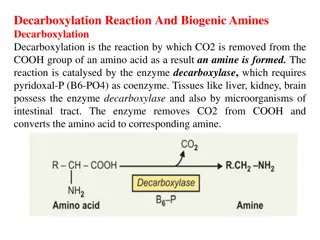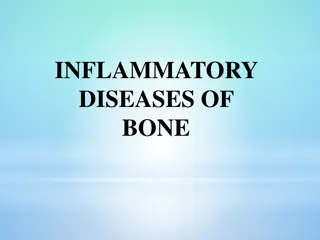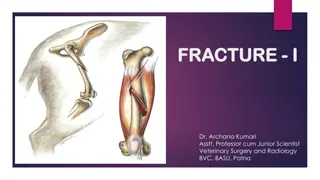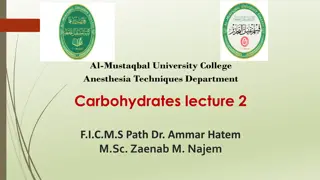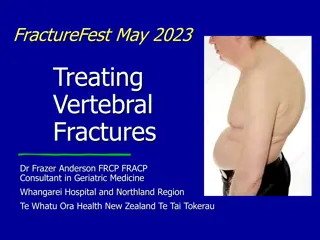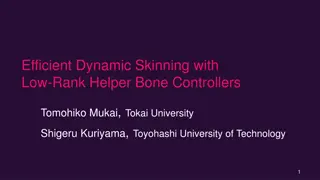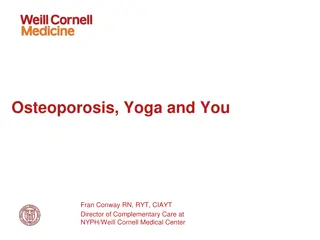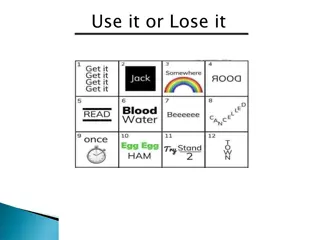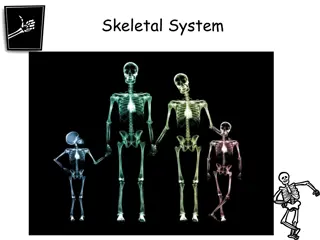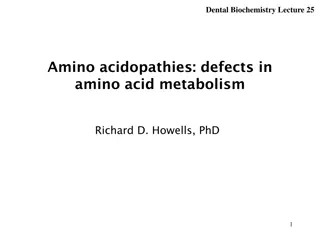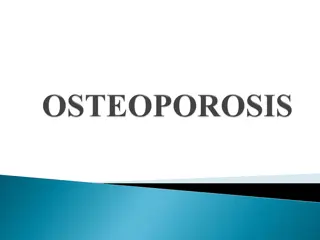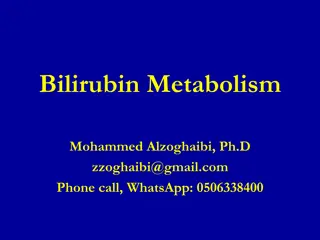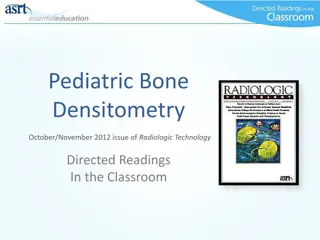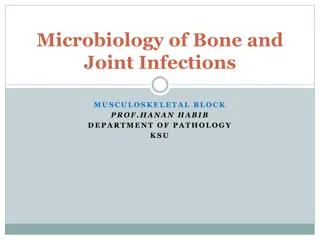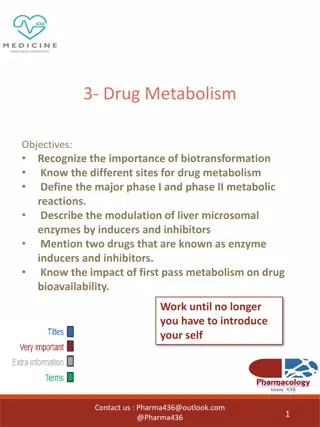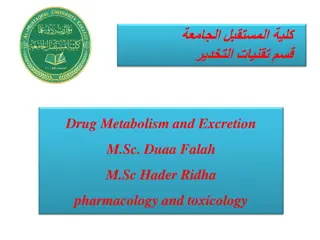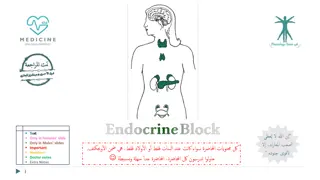Metabolic bone disease
Understand the metabolism of calcium and phosphorus, common disturbances, and nutrient requirements in preterm infants. Learn why metabolic bone disease is important and its long-term effects on bone health.
1 views • 59 slides
Preoperative Bone Health Assessment in Spine Fusion Surgery
This presentation by Dr. Mark L. Prasarn focuses on the importance of assessing preoperative bone health in older patients undergoing spine fusion surgery. It covers the potential bone-related complications, osteogenesis process, osteoconduction, osteoinduction, and the favorable biomechanical envir
1 views • 67 slides
Understanding Bone Anatomy and Composition
Explore the intricate details of bone structure and function, from the classification of bones by shape to the constituents of bone tissue. Learn about the essential role bones play in providing structural support, protection, and blood cell production. Delve into the anatomy of long and flat bones,
7 views • 31 slides
Understanding Bone Fractures in Orthopedic Medicine
Explore the features, causes, signs, and classifications of bone fractures in orthopedic medicine, including mechanisms, soft tissue involvement, displacement, and fracture patterns. Learn about the definition and common symptoms associated with bone fractures. Images and descriptions provide insigh
3 views • 25 slides
Bone Growth Stimulators Market Projected to Reach $1.94 Billion by 2030
Meticulous Research\u00ae, a premier market research company renowned for its cutting-edge insights, has announced the release of its latest report, titled \"Bone Growth Stimulators Market by Product (Stimulation Device [External, Ultrasonic, Implantable], Bone Morphogenetic Proteins, Platelet Rich
0 views • 4 slides
Bone Marrow Transplant Cost in India
The supple, fatty tissue found inside your bones is called bone marrow. The cells that make blood and platelets are found in bone marrow, which also produces billions of new blood cells daily.\nA bone marrow transplant (BMT) includes using healthy blood-forming stem cells to replace the patients' di
1 views • 2 slides
Protein Digestion and Metabolism in Ruminants and Non-Ruminants
Digestion and metabolism of protein in both ruminants and non-ruminants involve enzymatic breakdown of proteins into polypeptides and amino acids in the stomach and intestines. Key enzymes such as pepsin, trypsin, and chymotrypsin play important roles in protein digestion. Gastric digestion in the s
3 views • 14 slides
Abattoir Practices and Bone Products Technology Overview
Bone constitutes a significant portion of the dressed carcass weight, with various types such as fresh green bone and desert bone. Bones are used in various industries for products like glue, gelatine, and fertilizer. Different methods of bone processing are employed to extract valuable components l
0 views • 42 slides
Understanding Calcium Metabolism: A Comprehensive Overview
Calcium metabolism plays a critical role in various bodily functions like nerve conduction, coagulation, and bone mineralization. It involves processes such as calcium absorption, distribution, and homeostasis, regulated by hormones like PTH and calcitriol. The balance of calcium in the body is cruc
7 views • 50 slides
Understanding Peak Bone Mass and Bone Health in Adolescents
Discussing the importance of peak bone mass in adolescents for bone strength and the prevention of osteoporosis. Topics include factors influencing peak bone mass, interventions to optimize bone health, and risks associated with poor nutrition and eating disorders.
1 views • 45 slides
Understanding Nitrogen Metabolism: Amino Acid Biosynthesis and Ammonia Incorporation
Nitrogen metabolism is crucial in the biosynthesis of amino acids such as glutamate and glutamine, incorporating ammonia for various physiological processes. Ammonia is efficiently transported and stored using compounds like alanine and glutamate, playing a key role in the urea cycle. Glutamate, a v
0 views • 22 slides
Understanding Xenobiotic Metabolism for Biomedical Applications
Metabolism of xenobiotics, foreign chemicals like drugs, food additives, and pollutants, is crucial for pharmacology, toxicology, and disease management. Knowledge allows for beneficial applications such as antioxidant research, pollutant conversion, and drug biosynthesis using transgenic organisms.
0 views • 11 slides
Anatomy of the Humerus Bone in Veterinary Science
The humerus bone, also known as the arm or brachial bone, plays a crucial role in forming the shoulder and elbow joints. It features a shaft with distinct surfaces and nutrient foramen. The proximal extremity includes a head, neck, tuberosities, and a bicipital groove for various muscle attachments.
0 views • 15 slides
Understanding Seed Metabolism: Measuring Carbon Dioxide Production Before and During Germination
Exploring the metabolic processes in seeds, this study aims to compare carbon dioxide production before and during germination. Students will hypothesize and verify using a carbon dioxide SensorLab sensor. Theoretical aspects of plant metabolism, including photosynthesis and cellular respiration, wi
1 views • 22 slides
Understanding Corticosteroids: Pharmacology and Effects
Corticosteroids, including glucocorticoids and mineralocorticoids, play vital roles in intermediary metabolism, immune responses, and inflammation regulation. They bind to specific receptors in the cell, entering the nucleus to influence gene transcription and protein production. These hormones have
14 views • 32 slides
Innovative Polymer-Metal Bone Substitute for Enhanced Healing
Novel PEKK/tantalum/eADF4(C16) bone substitute developed to address limitations of current bone grafting materials. Combines antibacterial properties with osseointegration capabilities, offering potential for successful bone healing and growth. Research plan involves preparation, testing of properti
0 views • 10 slides
Understanding Inborn Errors of Metabolism and Metabolic Disorders
Inborn Errors of Metabolism (IEM) are genetic disorders that disrupt metabolic pathways, leading to substrate accumulation or product deficiency. These disorders can be classified based on toxic accumulation, protein metabolism, carbohydrate intolerance, lysosomal storage issues, energy production d
0 views • 29 slides
Understanding Rickets: Causes, Symptoms, and Pathophysiology
Rickets is a metabolic bone disorder primarily caused by deficiencies in vitamin D, calcium, or phosphorus. This leads to softening and weakening of bones, affecting bone growth and remodeling. Genetic, nutritional, and hormonal abnormalities contribute to this condition, impacting young growing ani
0 views • 16 slides
Decarboxylation Reaction and Biogenic Amines in Amino Acid Metabolism
Decarboxylation is a crucial reaction in amino acid metabolism where CO2 is removed to form biogenic amines, catalyzed by decarboxylase enzymes. Important biogenic amines include tyramine, tryptamine, and histamine, each impacting physiological functions like blood pressure regulation. Aromatic amin
0 views • 25 slides
Overview of Inflammatory Diseases of Bone
Inflammatory diseases of bone encompass conditions like osteitis, osteomyelitis, periostitis, and alveolar osteitis (dry socket). Osteitis is localized and may be associated with infected sockets, while osteomyelitis involves the interior of the bone. Alveolar osteitis commonly follows tooth extract
0 views • 20 slides
Understanding Bone Development and Composition in Veterinary Science
Bone development in animals involves the differentiation of mesenchymal cells into various bone components like osteoblasts, osteocytes, and osteoclasts. This process leads to the formation of specialized connective tissue that provides skeletal support, muscle leverage, and protection for vital org
3 views • 15 slides
Decoding Oxidative Decarboxylation and Krebs Cycle in Energy Metabolism
Explore the intricate processes of oxidative decarboxylation and the Krebs Cycle, essential pathways in cellular energy metabolism. Learn about the conversion of pyruvate to acetyl-CoA, regulatory mechanisms, clinical implications, and more. Discover the fates of pyruvate, allosteric regulation, and
6 views • 19 slides
Understanding Carbohydrate Metabolism and Diabetes Mellitus
Carbohydrates play a vital role in energy production through processes like glycolysis and gluconeogenesis. Glucose metabolism involves pathways like aerobic glycolysis and anaerobic lactate production. In diabetes mellitus, there is a disruption in carbohydrate metabolism leading to elevated blood
1 views • 14 slides
Insights into Vertebral Fractures and Bone Health
Delve into the world of vertebral fractures and bone health with Dr. Frazer Anderson. Explore the impact of fractures, the importance of understanding the spine, and how to treat and prevent fractures effectively. Uncover fascinating bone factoids and learn about bone turnover and the factors that c
0 views • 24 slides
Efficient Dynamic Skinning with Low-Rank Helper Bone Controllers
This research explores efficient dynamic skinning methods using low-rank helper bone controllers to achieve robust, simple, and high-performance skin deformation in computer graphics. By investigating linear blend skinning techniques and helper bone rigs, the study aims to address the wishlist of ga
0 views • 29 slides
Understanding Osteoporosis and the Role of Yoga in Bone Health
Osteoporosis is a condition characterized by low bone mass, leading to increased fracture risk. This presentation delves into the definitions of osteoporosis and osteopenia, outlines key statistics on bone health in the U.S., discusses risk factors such as age, genetics, and lifestyle habits, and ex
0 views • 24 slides
Understanding the Importance of Calcium for Bone Health
Adequate calcium consumption is crucial for maintaining healthy bones, teeth, and overall body function. Failure to achieve peak bone mass in adulthood could lead to conditions like osteoporosis. Calcium-rich foods like dairy products, dark green leafy vegetables, and fortified foods play a vital ro
0 views • 18 slides
Exploring the Human Skeletal System
The skeletal system plays crucial roles in supporting the body, protecting internal organs, facilitating movement with muscles, and producing blood cells. It consists of various bone structures like periosteum, compact bone, spongy bone, and bone marrow. The cranium houses important bones such as th
0 views • 53 slides
Overview of Amino Acidopathies in Dentistry: Defects in Amino Acid Metabolism
This lecture discusses the various amino acidopathies, including phenylketonuria, albinism, alkaptonuria, maple syrup urine disease, and homocystinuria. It covers the metabolic defects in amino acid metabolism, symptoms, causes, and treatment methods for these disorders. Emphasizing the importance o
0 views • 19 slides
Understanding Osteoporosis and Its Classification
Osteoporosis is a skeletal disease resulting in low bone mass and increased fragility. It occurs due to an imbalance in bone formation and resorption, leading to weakened bones and higher fracture risk. The disease is classified into primary and secondary types, with various subcategories based on a
0 views • 19 slides
Understanding Methanol Metabolism and Blood Levels
This content discusses the difference between background/endogenous and exogenous methanol, how metabolism of endogenous methanol affects exogenous metabolism, and the impact of exposure to different levels of methanol on blood concentrations. It highlights EPA PBPK models and assumptions regarding
0 views • 16 slides
Understanding Bilirubin Metabolism in Human Body
Bilirubin, a key pigment in bile, is derived from heme breakdown and plays a crucial role in the liver's detoxification process. This article explores the metabolism of bilirubin, its relationship with heme and globin, as well as its excretion steps involving enzymatic reactions and conjugation in h
0 views • 31 slides
Pediatric Bone Health: Imaging and Assessment in Children
Discussions on the importance of assessing bone density in pediatric patients, focusing on skeletal development, anatomy, and types of bone tissue. Exploring how bone densitometry can help identify diseases affecting bone growth in children and adolescents to prevent future complications like osteop
0 views • 64 slides
Understanding Bone Destruction in Periodontal Disease
The progression of periodontal disease can lead to bone destruction in the alveolar bone, which is crucial in supporting teeth. The inflammatory process causes permanent damage to the periodontium tissues, resulting in connective tissue loss and bone resorption. Different patterns of bone loss, such
0 views • 14 slides
Understanding Biological Changes with Light or Heavy Forces Application
Tooth movement can be categorized as physiologic, pathologic, or orthodontic, with forces transmitted through the tooth to the periodontal ligament and alveolar bone. Changes occurring due to light and heavy forces result in bone resorption and deposition, impacting the supporting structures. Histol
0 views • 25 slides
Overview of Microbiology in Bone and Joint Infections
Bone and joint infections can have devastating effects if not treated promptly. They can be caused by blood-borne spread or local trauma and are more common in infants and children. Acute osteomyelitis, a common type of bone infection, can last from a few days to several weeks or months. Understandi
0 views • 35 slides
Understanding Drug Metabolism: Importance and Mechanisms
Drug metabolism is a crucial process in the body that transforms drugs into forms easily excreted, affecting their efficacy and toxicity. This involves different sites such as the liver, kidney, and plasma, with enzymes in cellular organelles like cytoplasm and mitochondria playing key roles. First-
0 views • 13 slides
Understanding Drug Metabolism and Excretion in Pharmacology
Drug metabolism involves the biotransformation of pharmaceutical substances in the body, primarily in the liver, to facilitate their elimination. This process helps convert drugs into less active forms for enhanced elimination through various reactions in Phase I and Phase II metabolism. Factors suc
0 views • 20 slides
Understanding Parathyroid Disorders - Calcium Metabolism and Hormonal Regulation
This presentation covers the functions of calcium, calcium metabolism, bone physiology, and hormonal regulation of calcium metabolism focusing on parathyroid hormone, calcitonin, and Vitamin D. It discusses hypo and hyperparathyroidism in detail, including clinical manifestations and treatment optio
0 views • 15 slides
Understanding Newer Antianginals and Cardiomyocyte Metabolism
Chronic angina is a condition marked by impaired quality of life and decreased life expectancy, primarily due to myocardial ischemia. It is characterized by symptoms like tightness, heaviness, and pressure sensation, often located retrosternally. The pathophysiology involves a mismatch between oxyge
0 views • 73 slides
